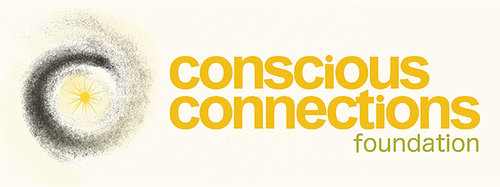Written by Lisa Bower, Board Member
Hello, Conscious Connections family! We’re thrilled to reconnect with you and share some transformative news that has been brewing behind the scenes. After a quiet few months of dedicated work, we’re excited to announce our new partnership that will expand our impact in Nepal.
A Partnership Rooted in Shared Vision
In mid-December, Conscious Connections Foundation (CCF) took an important step forward by signing a Memorandum of Understanding with Conscious Connections Nepal (CCN), our new partner organization in Nepal. This collaboration isn’t just a formality—it’s a vibrant commitment to deepening our work on the ground. By joining forces, CCN now becomes an independent, registered non-profit in Nepal with the ability to receive funds directly from abroad, which means we can support community projects more efficiently and effectively.
At Conscious Connections Foundation, our mission is to invest in the power of women and girls to be key participants in their society. Partnering with CCN amplifies this mission, allowing us to work more directly with local partners and reduce administrative hurdles. In turn, CCN gains the flexibility to seek additional funding, ensuring that their programming can expand and evolve with the needs of Nepal’s diverse communities. Over the years, CCF has been dedicated to training women leaders, and we are thrilled to see several of them now stepping into influential roles at CCN—turning their skills into action and shaping a brighter future.
CCF and CCN with Drokpo Nepal staff. Left to right: Pema Yangkyi Gurung (MH Program Director of Drokpo), Sonam Dolma Lama (Director of Drokpo), Kesang Yudron (CCF board member and CCN Founder and Director), Denise Attwood (co-founder/Chair of CCF), Chunta Nepali, and Igroom Lama (CCN Staff Member)
What CCN Brings to the Table
Strengthening Sexual and Reproductive Health Rights (SRHR):
CCN is set to continue and deepen the critical work of CCF on SRHR, including:
training women to make reusable menstrual pads;
distributing pre-made reusable menstrual hygiene kits;
supporting women by exposing myths about menstruation; and
continuing to engage and support members of the LBGTQI+ community and other marginalized groups across Nepal.
Boosting Livelihoods & Entrepreneurship:
In addition to health initiatives, CCN will further its work in livelihood and entrepreneurship. By supporting women and girls in skills development that provide reliable income, they’re not only fostering creative enterprise but also building pathways for economic independence.
Championing Education:
Education remains a cornerstone of sustainable development. CCN will continue to support education through scholarships and other initiatives, opening doors for Nepal’s women, girls, and marginalized individuals to a brighter future.
Addressing Climate Change:
In a world where climate change is reshaping lives around the world, CCN is also boldly stepping into a new arena. They will focus on helping rural communities adapt to environmental changes, with special attention to the links between climate change, women, SRHR, and economic empowerment.
While these initiatives might seem ambitious, the CCN team is embracing a step-by-step approach—ensuring that every project is both impactful and sustainable and learning is captured along the way.
CCF and CCN with the Nepal Disabled Women’s Association Kavre. Left to right: Sabitri Dahal (Consultant to Nepal Disabled Women Association Kavre), Denise Attwood (co-founder/Chair of CCF), Pampha Pulkoti (VP of Nepal Disabled Women’s Association Kavre) and Kesang Yudron, (CCF board member and CCN Founder and Director)
What’s on the Horizon?
As we look ahead in 2025, CCF and CCN have been hard at work outlining a clear vision for the upcoming year. In a detailed review at the end of 2024, we finalized the budget that will guide CCN’s projects over the next 1 to 1.5 years. 2025 will be our most ambitious year yet! Stay tuned for updates as we share more about specific projects in the coming months. It’s also important to note that while we have set long-term plans, CCN will retain the flexibility to provide emergency funding or adjust programming as new challenges emerge.
Moving Forward Together
CCF’s partnership with CCN is more than an administrative milestone—it’s a testament to our shared belief in empowering local communities and fostering sustainable change. We are also so excited to provide a leadership training platform for the incredible women now leading CCN - putting the women of Nepal front and center in shaping the future of the organization and their work in the country.
As we embark on this new chapter, we invite you to join us on the journey. Thank you for being part of our growing community of changemakers. Together, we are building a future where connection and compassion lead the way. Help us continue to support important work taking place in Nepal.




